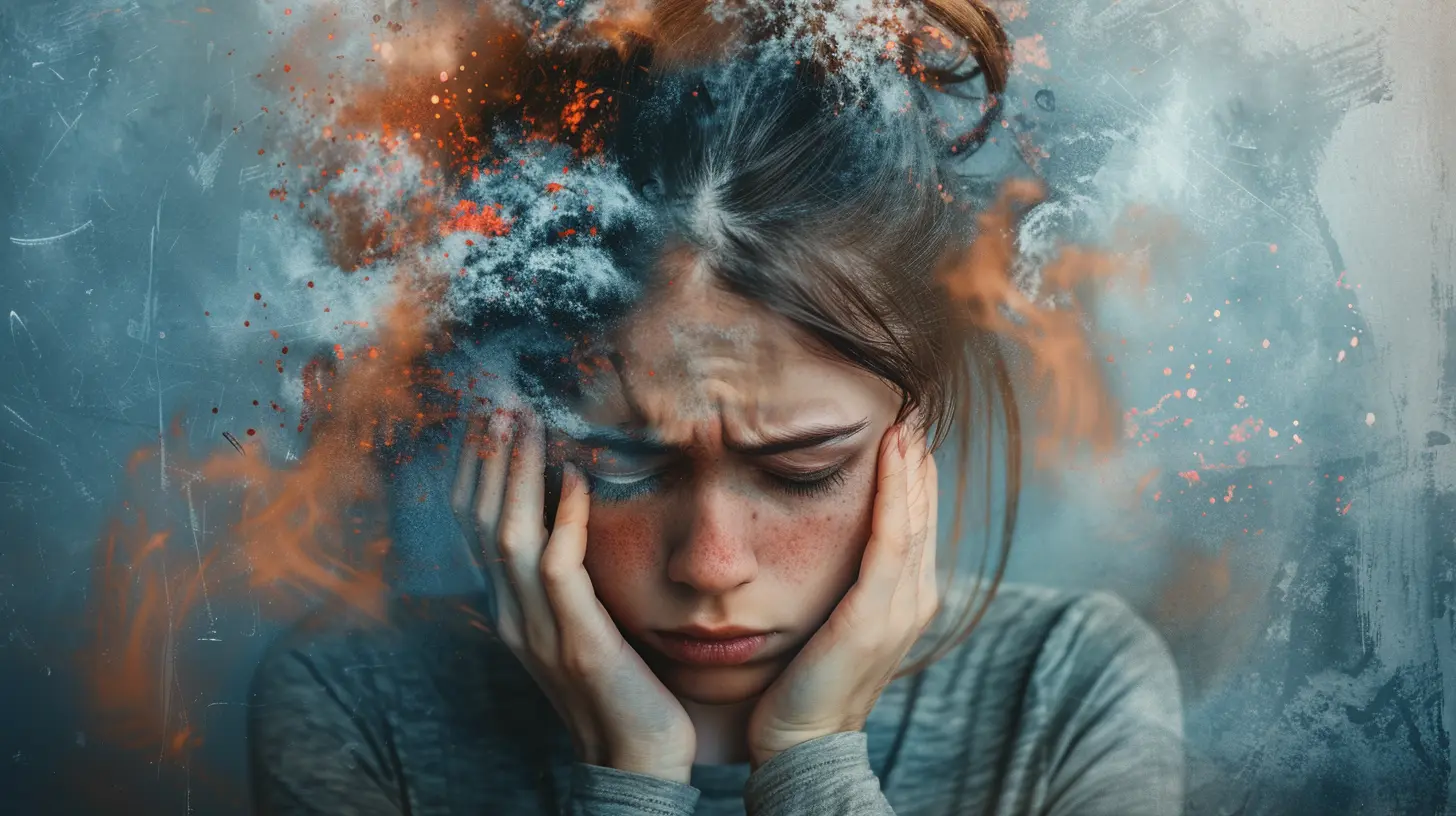How Hormonal Changes Affect Teen Mental Health
1 November 2025
Let’s talk about something that affects every teenager on the planet—but often gets swept under the rug: hormones. Yep, those tiny chemical messengers that can make even the calmest teen one minute explode with frustration the next. Hormones don’t just trigger physical changes like growth spurts and acne. They also play a huge role in shaping a teen's thoughts, emotions, and mental well-being.
So, how exactly do hormonal shifts impact teen mental health? Why does your teen suddenly cry over a commercial or go from smiling to sulking in 0.2 seconds? The answer, in large part, is written in their biology.
In this deep dive, we’re going to break down what’s going on behind the scenes in a teenager’s body and brain. We'll chat about hormonal changes, their connection to mental health, and ways to help teens navigate this wild ride with a bit more ease.
Understanding Hormones: The Invisible Driving Force
Hormones are like the body's internal emails—fast, powerful, and capable of setting big systems into motion. Controlled by glands in the endocrine system, these chemical messengers regulate everything from mood to metabolism.When puberty hits, it's like flipping a hormonal switch. Suddenly, the brain starts pumping out signals that tell the body to produce sex hormones—estrogen in females and testosterone in males—along with a mix of other mood-linked chemicals like cortisol and dopamine.
And guess what? These aren't just physical game-changers. They hit the emotional centers in the brain head-on, especially places like the amygdala (command central for emotions) and the prefrontal cortex (the wise decision-maker which, by the way, is still under construction in teenagers).
The Emotional Rollercoster: Why Teens Feel “All Over the Place”
Ever heard a teen say, “I don’t know why I’m crying”? That’s not drama; it’s biology.Puberty and Mood Swings
When puberty kicks in, hormone levels spike and dip like a volatile stock market. Estrogen and progesterone in females can cause wide emotional swings, from joy to sadness to rage, all within hours. Testosterone in males can trigger irritability and aggression. These hormones mess with neurotransmitters like serotonin and dopamine—the “feel-good” chemicals in our brains.So, when a teen is going through puberty, they might literally be chemically primed for anxiety, sadness, or happiness. And since their brains haven't developed the same emotional regulation skills as adults, it’s all the more intense.
Sleep Woes Make It Worse
Hormonal changes also mess with melatonin production, which regulates sleep. Teens often experience a delay in melatonin release, meaning they get sleepy later—and wake up cranky and tired because school starts early. Chronic sleep deprivation throws a wrench into emotional balance and can mimic symptoms of depression or anxiety.Imagine trying to be emotionally stable while jetlagged every single day. That’s a teen's life during puberty.
Anxiety, Depression, and Hormonal Chaos
The Stress-Hormone Connection
Cortisol, the stress hormone, plays a massive role in how teens handle pressure—academic, social, or even digital. During puberty, the hypothalamic-pituitary-adrenal (HPA) axis becomes more reactive. Translation? Teens tend to have a heightened stress response. A small issue might feel like the end of the world. Heart racing, palms sweating, mind swirling with "what ifs"—that’s cortisol in action.Estrogen and Depression in Adolescent Girls
Research shows that girls are twice as likely to develop depression during puberty than boys. One big culprit? Estrogen fluctuations. This hormone doesn’t just affect reproductive health—it interacts with the brain's serotonin systems. When estrogen levels drop (like during menstruation), serotonin can crash too, leading to feelings of sadness or emptiness.And if you're thinking, "Wait, isn't this also kind of like PMS?"—you're right. But for some teens, it's way more intense and persistent, evolving into something called Premenstrual Dysphoric Disorder (PMDD), a severe form of PMS that heavily impacts mood.
Testosterone and Mood in Teenage Boys
Sure, testosterone is linked to growth spurts and voice changes. But it also affects mood regulation. Some studies suggest that extreme spikes in testosterone can be linked to increased risk-taking, aggression, and in some cases, depressive symptoms, especially when there’s social stress or isolation involved.
The Social Side of the Hormonal Equation
Let’s not forget the social aspect. Teens already feel like they’re under a spotlight. Add the hormonal mood swings to peer pressure, academic pressure, body image issues (also hormone-influenced), and the endless scroll of social media, and it's a perfect storm for mental health challenges.Body Image and Self-Esteem
Teens are hyper-aware of their appearance, and hormonal changes often trigger acne, weight gain, or breast development—stuff that doesn’t always feel comfortable. If a teen struggles with how they look, it can easily snowball into low self-worth or even eating disorders.Social Stress and Hormonal Sensitivity
Hormones make teens more sensitive to social rejection. Something as small as not getting a text back from a friend can feel devastating. And because the brain regions responsible for processing social information are still maturing, teens often misinterpret social cues, leading to anxiety and self-doubt.When It’s More Than Just Hormones
Sure, hormones can mess with emotions. But when do mood swings cross the line into something more serious?Warning Signs
- Persistent sadness or hopelessness- Withdrawal from friends and activities
- Drastic changes in eating or sleeping habits
- Intense irritability or rage
- Self-harm or talk of suicide
If these symptoms stick around for more than two weeks, it’s time to take action. Hormones might be the trigger, but they can also unmask underlying mental health disorders like major depression, anxiety disorders, or even bipolar disorder.
Gender Differences in Mental Health Outcomes
Because hormones affect male and female brains differently, mental health outcomes often split along gender lines during adolescence. Girls tend to internalize stress—think sadness, anxiety, and self-criticism. Boys, on the other hand, may externalize—showing anger, acting out, or becoming defiant.Understanding these patterns can help parents, teachers, and therapists intervene in ways that resonate more with the teen’s experience.
How to Help Teens Cope (Without Losing Your Mind)
Good news: teens aren’t doomed to hormonal chaos. There are ways to help them ride the waves of adolescence with a bit more stability.Open Up the Conversation
The first step is letting teens know what’s happening in their bodies and brains is normal. Normalize mood swings. Talk openly about mental health. If they understand that their feelings are connected to real biological changes, it becomes less scary and more manageable.Encourage Healthy Habits
- Sleep Hygiene: Teen brains need 8–10 hours of quality sleep. Encourage a wind-down routine and keep screens out of the bedroom.- Exercise: Regular movement helps balance hormones and boost mood.
- Nutrition: A diet rich in whole foods, lean proteins, and omega-3s supports brain health.
- Mindfulness: Deep breathing, journaling, or meditation can help teens reconnect with themselves amid the chaos.
Consider Professional Help
Sometimes hormones are just the tip of the iceberg. If your teen is struggling, don’t hesitate to consult a pediatrician or mental health professional. Therapy or counseling can make a world of difference.Limit Social Media Exposure
Social platforms can amplify insecurity and comparison. Encourage digital detoxes, screen time limits, and real-world friendships.Final Thoughts: It's a Phase, But It’s Also Real
Teenagers are not “just being dramatic.” Their brains and bodies are undergoing a full-on renovation, and hormones are the contractors—messy, unpredictable, and sometimes uninvited. But this isn’t something to fear. It’s something to understand.By recognizing how hormonal changes affect teen mental health, we can better support the next generation. With empathy, education, and a little patience, we can guide them through this turbulent time and help them come out stronger on the other side.
Because while hormones may rule for now—resilience, support, and self-awareness can take the lead.
all images in this post were generated using AI tools
Category:
Mental Health In AdolescenceAuthor:

Nina Reilly
Discussion
rate this article
1 comments
Renata McLean
This article sheds light on the critical link between hormonal changes and teen mental health. Understanding these shifts is essential for parents, educators, and teens themselves. It highlights the need for open conversations and support to navigate these challenging yet formative years.
November 6, 2025 at 5:49 AM

Nina Reilly
Thank you for your insightful comment! I completely agree that understanding hormonal changes is vital for supporting teens through these challenging years. Open conversations are key to fostering mental wellness.


